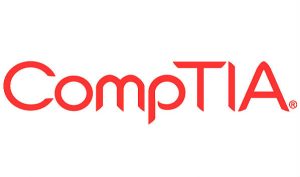The CP List: 20 Top In-Demand IT Certifications
You should hold these certs to advance your career.

Want to increase your value and earn more money in the channel? IT certifications are the ticket, but which ones are most worth pursuing?
Industry trends, such as the ongoing cybersecurity talent shortage and massive cloud migration, are impacting which certs are most in demand and which ones lead to the highest-paying salaries.
Industry experts like CompTIA, Global Knowledge and Robert Half, as well as Jo Peterson, vice president of cloud services at Clarify360 and Cloud Girls‘ co-founder, and member of the Channel Partners Editorial Advisory Board, all weighed in on why certs are important and which provide the most benefit. Global Knowledge’s list and Robert Half’s list highlight top-paying certs.

Global Knowledge’s Zane Schweer
Zane Schweer, Global Knowledge‘s director of marketing communications, said a cert recognizes that you have a “proven understanding and mastery of the concepts, skills and capabilities within a specific body of knowledge.”
“So the top-paying certification list highlights some of the areas where organizations are paying top salaries for specific knowledge, skills and abilities (KSAs),” he said. “One of the cool stats that we’ve started to see emerge and proved true again for this year is that over half of the professionals that have achieved certifications say their expertise is more sought after. So with technology being more democratized … people are finally being more widely recognized as the competitive advantage, which is why we believe that technology is only as powerful as the people who are trained to use it.”
James Stanger, CompTIA chief technology evangelist, said it’s not so much a shortage of certs, but a shortage of qualified workers who are trained, educated and credentialed to fill high-demand positions.

CompTIA’s James Stanger
“Certifications are a part of the mix, but not necessarily the driver that establishes a salary,” he said. “Top-paying tech jobs are more a reflection of the supply and demand for a particular position, the importance of the job role within the organization and the experience level required to fill those jobs. We see a lot of demand in certifications that lead to both moderate and high-paying jobs. We are seeing ever-increasing demand for technical support and help desk professionals, as well as higher-paying jobs, such as for security analysts and penetration testers.”
Peterson said IT certs tend to fall into two buckets — technical and non-technical, or technical sellers. AWS Cloud Practitioner Essentials (Second Edition) would be an example of a technical seller cert, while MCSA (Microsoft Certified Solutions Associate) is an example of a technical cert, she said.
“There is a high shortage of AWS Certified Solution Architects,” she said. “In the security space, the same thing applies to Certified Information Systems Security Professional (CISSPs). IDC also raised its forecast for total spending (vendor revenue plus channel mark-up) on cloud IT infrastructure in 2018 to $65.2 billion with year-over-year growth of 37.2%.”
Jim Johnson, senior vice president for Robert Half Technology, said in general, leaders are looking for the most well-rounded team members possible, and certs can reflect the breadth of a candidate’s skill set.

Robert Half’s Jim Johnson
“Companies are increasingly focused on security, cloud projects, software development and business intelligence, but we’re seeing a shortage of skilled talent in these areas,” he said. “Certifications are very important for a technology professional’s career. Employers often place a great emphasis on them when hiring, as they want a candidate with current knowledge and a great deal of experience with a certain technology or area. And in an industry that changes as quickly as technology, certifications are a great way for professionals to show that they’re eager to advance their skills and learn new systems, software and management practices.”
Based on feedback, we’ve compiled a list, in alphabetical order, of 20 top IT certs that are resonating most with technology leaders as they are seeking talent for their teams.
AWS Cloud Practitioner Essentials (Second Edition)
Cited by Jo Peterson, this cert provides an overview of cloud concepts, AWS services, security, architecture, pricing and support.
“This will be the 12th year of our report and cloud has been mentioned 216 times since 2007-2008, but 206 of those mentions have occurred since 2015,” Schweer said. “That just shows how all of a sudden it just skyrocketed, and because of that skyrocketing we also saw cloud-related and cloud-based certifications take off, and the salaries of those take off as well because it was new and people needed to get the skills to be able to bring that into their business.��”
AWS Certified Solutions Architect – Associate
Cited by Global Knowledge, the AWS Certified Solutions Architect — Associate cert demonstrates an individual’s expertise in designing and deploying scalable systems on AWS.
“IT certifications are readily available – and so are jobs in tech – to anyone with the aptitude, commitment and desire to pursue them,” Stanger said. “There are many pathways into the tech workforce. Some enter through the traditional high school, community college or four-year university route. We also see a good number of careers changers — veterans who’ve transitioned out of the military to civilian life, workers who’ve been laid off in other industries, and individuals returning to the labor force.”
(list continued on next page)
AWS Certified Developer – Associate
Also cited by Global Knowledge, this cert validates technical expertise in developing and maintaining applications on AWS, as opposed to designing the solution with the Solutions Architect certification.
 Certified Cloud Security Professional (CCSP)
Certified Cloud Security Professional (CCSP)
Cited by Peterson, this cert was co-created by Cloud Security Alliance and (ISC)², and provides deep knowledge and hands-on experience with cloud security architecture, design, operations and service orchestration.
“Today, very few organizations are just a one-tech-provider shop so you have to have a lot of skill sets for a lot of different tech providers,” Schweer said. “Organizations and professionals are looking for guidance on skills-development paths, and what skills their organization need[s] in terms of cybersecurity.”
(list continued on next page)
Certified Ethical Hacker
 The International Council of E-Commerce Consultants (EC-Council) created and manages this cert, which is designed for security officers and auditors, site administrators and others responsible for network and data security, according to Global Knowledge.
The International Council of E-Commerce Consultants (EC-Council) created and manages this cert, which is designed for security officers and auditors, site administrators and others responsible for network and data security, according to Global Knowledge.
“Cybersecurity has always been a top priority since we started keeping the list, so the Information Systems Audit and Control Association (ISACA), (ISC)² and EC Council certifications, they’re regulars, they’re best in class and leading the way in terms of cybersecurity and risk, and privacy best practices,” Schweer said.
Certified Information Security Manager
Cited by both Global Knowledge and Robert Half, this is a management-focused certification for professionals who build and manage an enterprise’s information security. It promotes international security best practices.
“Anyone can pursue a certification, but they can be rigorous programs, so they are best suited for someone who has a bit of knowledge, and can put the time and effort into attaining them,” Johnson said. “It should be thoughtfully considered whether to pursue a certification, you want to make sure the reward matches the effort by way of better opportunities for your career path.”
(list continued on next page)
Certified Information Systems Security Professional (CISSP)
Cited by Global Knowledge and Robert Half, this is a vendor-neutral credential designed to prove security expertise. Candidates must have at least five years of full-time, paid experience in at least two of the eight CISSP domains.
“Customers and consumers aren’t as willing to stand back and risk hackers accessing their information … you can’t afford to take cybersecurity lightly,” Schweer said. “So that’s why these cybersecurity certifications continue to be at the top and continue to be top paid because it’s easier to pay a top salary than losing customers and losing revenue.”
 Certified in Risk and Information Systems Control
Certified in Risk and Information Systems Control
Cited by Global Knowledge, these certified professionals help organizations understand business risk, and possess the skills to implement, develop and maintain information systems controls.
(list continued on next page)
Certified ScrumMaster
Cited by Global Knowledge, this cert, created and managed by the Scrum Alliance, validates that you understand the Agile Scrum methodology and are well-versed in putting Scrum into practice. A certified ScrumMaster leads a team and helps them work together to learn the Scrum framework and perform at their highest level.
 Cisco Certified Architect
Cisco Certified Architect
Robert Half said Cisco Certified Architect is “one of the most valuable certifications to have in the field of network architecture, but is also difficult to attain. This architect-level accreditation sits at the pinnacle of Cisco’s certification pyramid, and being a Cisco Certified Design Expert (CCDE) is a prerequisite.”
(list continued on next page)
 Cisco Certified Networking Professional Routing and Switching
Cisco Certified Networking Professional Routing and Switching
Cited by Global Knowledge, this advanced cert provides network engineers and administrators with the skills to plan, implement, verify and troubleshoot local and wide area enterprise networks, and ensures they can work with specialists on advanced security, voice, wireless and video solutions.
(list continued on next page)
 Cisco Certified Network Professional Wireless
Cisco Certified Network Professional Wireless
Cited by Robert Half, this cert addresses the need for designing, implementing and securing Cisco wireless networks for optimal performance. It also emphasizes wireless networking principles and theory, and recognizes the expertise and technical acumen of wireless professionals who can assess and translate network business requirements into technical specifications that result in successful business outcomes, according to Cisco.
(list continued on next page)
 CompTIA A+
CompTIA A+
Cited by Peterson as a tech seller cert, this is a qualifying credential for technical support and IT operational roles. Candidates are prepared to troubleshoot and problem solve, and technicians understand a wide variety of issues ranging from networking and operating systems to mobile devices and security.
“If I’m selling a tech provider’s technology, I want my customers to be as successful as possible because then that’s going to make me look good, and then will make them want to continue doing business with me,” Schweer said. “And that comes down to how quickly you are going to be able to help that customer get their return on investment that that technology is promising. That comes down to reducing the human element, which is that learning curve of using that technology. It’s training, it’s stressing the value and benefit of training, and how it’s going to deliver the return on investment faster, it’s going to reduce the typical headaches that you encounter when you’re deploying new technology, or new software or hardware.”
(list continued on next page)
 CompTIA Cloud Essentials
CompTIA Cloud Essentials
Also cited by Peterson as a tech seller cert, this vendor-neutral certification measures the knowledge needed to help streamline cloud implementation, create a common language for staff and improve productivity across varying levels of business professionals.
(list continued on next page)
CompTIA Security+
 Cited by Global Knowledge, this cert covers an array of foundational security topics, including data, application, host, network, physical and operational security. Many organizations consider Security+ to be the minimum level of certification to validate the baseline skills you need to perform core security functions.
Cited by Global Knowledge, this cert covers an array of foundational security topics, including data, application, host, network, physical and operational security. Many organizations consider Security+ to be the minimum level of certification to validate the baseline skills you need to perform core security functions.
“As employers became more aware of cyberthreats and the harm that they can do to a business, many opted to strengthen their defenses by hiring more IT professionals with cyberskills,” Stanger said. “Those skills (run the) gamut from foundational-level cybersecurity skills required of IT technicians who are the first line of defense, to more advanced cyberskills in areas such as penetration testing and advanced security analytics.”
(list continued on next page)
Google Certified Professional Cloud Architect
 Cited by Global Knowledge, this cert allows IT professionals to certify as a cloud architect on the Google Cloud Platform (GCP). It demonstrates the ability to design, develop and manage a secure, scalable and reliable cloud architecture using GCP technologies.
Cited by Global Knowledge, this cert allows IT professionals to certify as a cloud architect on the Google Cloud Platform (GCP). It demonstrates the ability to design, develop and manage a secure, scalable and reliable cloud architecture using GCP technologies.
“These certs absolutely are difficult to attain,” Schweer said. “They’re supposed to be a challenge and that’s why they are so highly valued and regarded. IT decision makers know the effort and the level of commitment it takes to achieve these certifications, and who doesn’t want these people on their team? It takes years sometimes to achieve these.”
(list continued on next page)
Information Technology Infrastructure Library (ITIL) Foundation
 Cited by Global Knowledge, this is the entry-level ITIL certification, providing a broad-based understanding of the IT service life cycle. It is accepted as a framework for managing the IT life cycle.
Cited by Global Knowledge, this is the entry-level ITIL certification, providing a broad-based understanding of the IT service life cycle. It is accepted as a framework for managing the IT life cycle.
“IT managers are realizing that many of their workers have gaps in their knowledge,” Stanger said. “They are looking for ways to up-skill these employees efficiently — meaning that they want to do it quickly, but in a cost-effective way. Increasingly these managers are looking for well-defined education pathways. Without these pathways, managers tend to ‘fly blind’ and don’t have the confidence they need to move forward with essential projects.”
(list continued on next page)
 Microsoft Certified Solutions Expert (MCSE)
Microsoft Certified Solutions Expert (MCSE)
Cited by Robert Half, this cert is for tech professionals who already have attained their Microsoft Certified Solutions Associate (MCSA) certification. The next step is to pass one or more of the 13 exams in specialty areas ranging from cloud data platform solutions to data engineering using Azure HDInsights, it said.
“These certifications are indicative of what certifications are resonating most with technology leaders as they are seeking talent for their teams,” Johnson said. “They are not all-encompassing in terms of the full scope of talent leaders are seeking, but they are reflective of the certifications giving professionals a leg-up in the job search.”
(list continued on next page)
 Oracle Certified Professional, Java SE 8 Programmer
Oracle Certified Professional, Java SE 8 Programmer
Java remains the most popular language for desktop and mobile development, according to Robert Half. This certification can help you stand out when competing with other candidates for a high-paying job opportunity, and the most valuable Java certifications are the ones offered by the parent company, it said.
“Many of the technical certifications take many months of study and often require a period of intense learning like a boot camp,” Peterson said.
(list continued on next page)
 Red Hat Certified System Administrator
Red Hat Certified System Administrator
The Red Hat Certified System Administrator is the most popular Red Hat cert to be pursued in 2019, while Red Hat Certified Engineer is second, Schweer said.
Red Hat provides certification tracks so IT professionals call follow a road map, he said.
“That makes it easier for them to follow and then for their managers to help guide them on their career paths if they’re certification focused,” Schweer said.
Read more about:
AgentsAbout the Author(s)
You May Also Like


